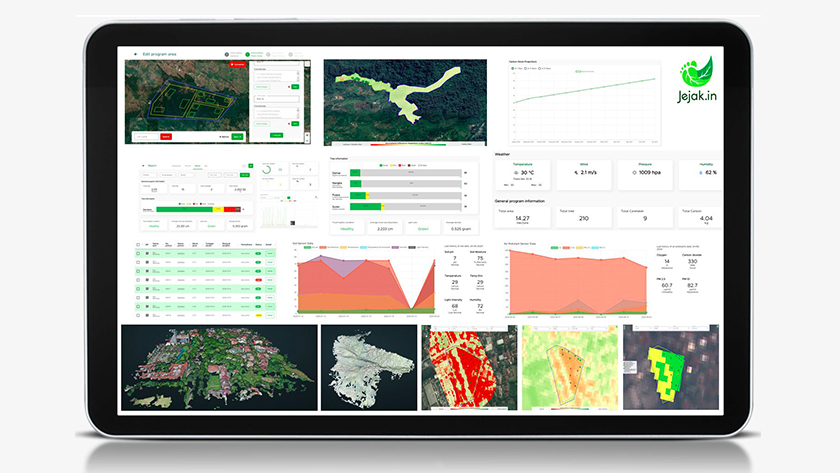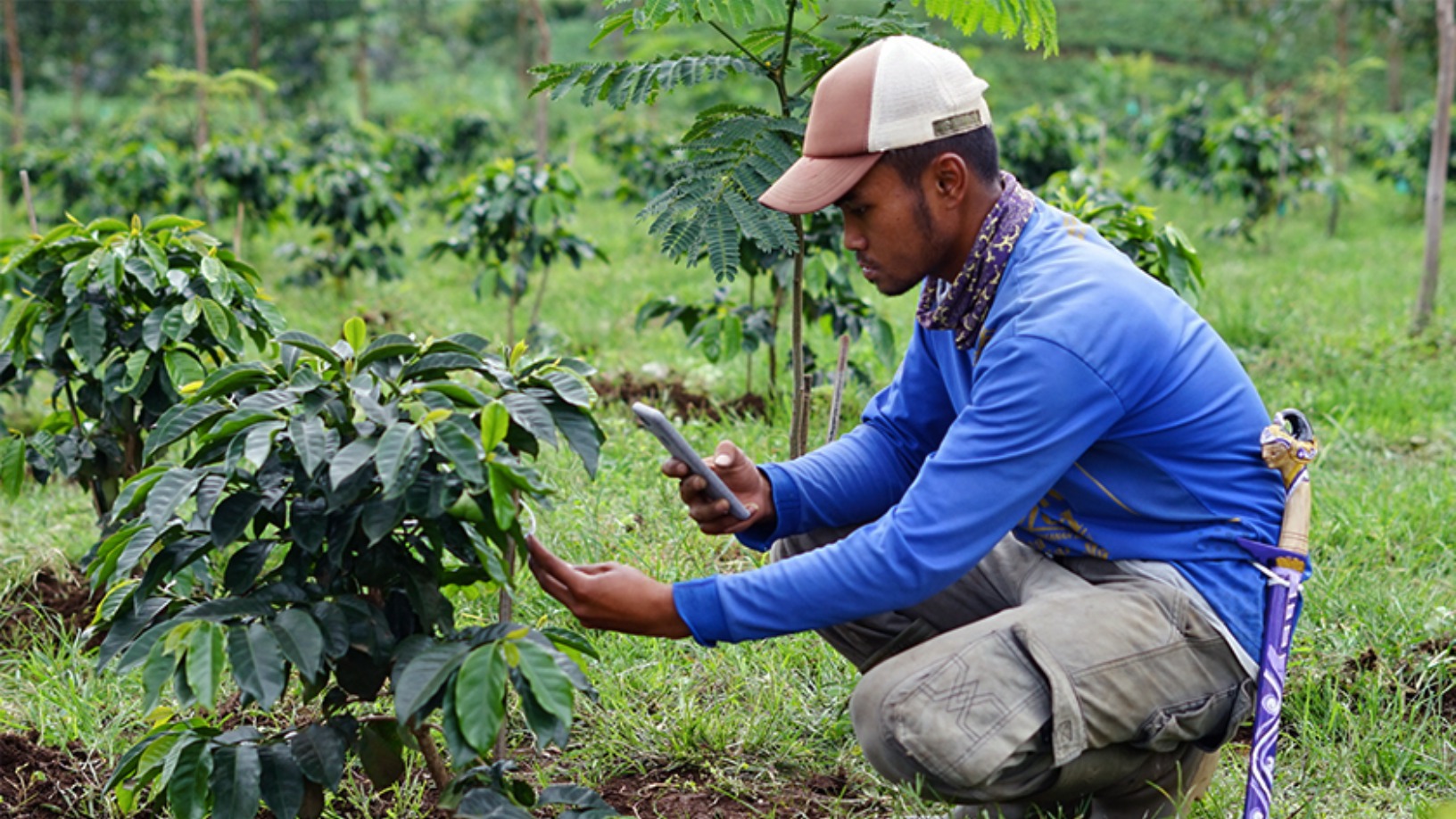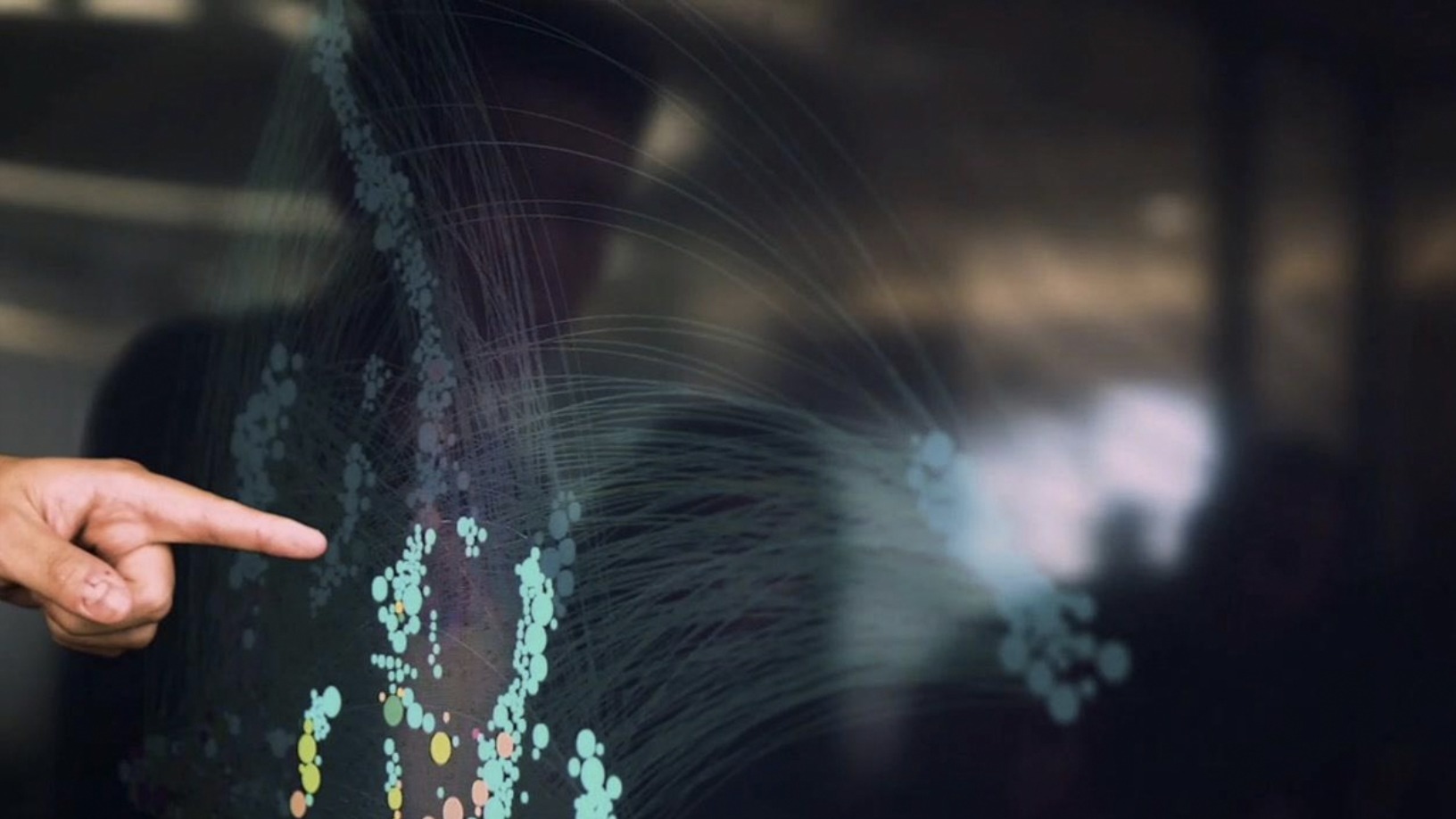Tree planting is often promoted as an easy way to contribute to conservation and to fight climate change. However, it takes more than a tree planting ceremony to make a meaningful and positive impact on the environment. The trees also have to be cared for and monitored to ensure they stay alive and contribute to conservation and carbon sink.
Jakarta-based startup Jejak.in is using AI to help organizations deliver on their conservation programs and promises. Using a combination of QR code tags, soil and air sensors and machine learning, Jejak.in’s map-based desktop software and mobile app enables fast and efficient tracking of the impact of tree planting and conservation programs.
The young startup was spun off earlier this year from parent company Nawatech, and is already working with large corporations like bottled drinking water giant Danone-Aqua and NGOs like the World Wildlife Fund (WWF).
Jejak.in is also expected to announce on July 22 a carbon-offsetting collaboration with a “ride-hailing decacorn startup," CEO and founder Arfan Arlanda said in an interview last week.
Jejak.in’s first project began before it was formally incorporated. When Arlanda was running Nawatech, a software development and AI consulting firm, he was approached by Danone-Aqua for a mobile app to encourage citizens to participate in tree-planting activities as part of a government project to restore the river banks of the heavily polluted, 270 km-long Citarum river.
After many brainstorming sessions, Arlanda and his team built a basic mapping product to demonstrate how Danone-Aqua and other parties can monitor and measure the impact of their activities. Arlanda gained Danone-Aqua’s support and with it came the development of the product into a full-fledged startup. The project still continues today as part of Danone-Aqua’s corporate social responsibility program.
Over 15,000 tree species
Each conservation project is unique, with different goals and circumstances depending on the client and the geographical location. Jejak.in’s end-to-end platform allows clients to plan their project from scratch, beginning from a survey of a topographical map of the project location to determine the scope of their work.
Using Jejak.in’s data on a variety or trees and plants, clients are also able to choose suitable trees for the location and even the ideal distance between each tree, which is important in forest restoration and land reclamation projects.
“We have data on more than 15,000 tree species, which allows us to measure things like biomass of the plants,” said Arlanda.
After the trees are planted, the client is able to monitor the trees using both manual and computerized methods. With data from drone surveillance and satellite imagery, Jejak.in’s machine learning algorithm can assess the trees’ health by estimating the amount of chlorophyll in the leaves. Sensors in the project area also collect environmental impact indicators, such as, soil nutrients, acidity, and air quality.
Surveyors on the ground can also use Jejak.in’s app to measure and log data, including an AI-powered camera to measure the diameter of a tree, removing the need for complex measuring instruments in the field. The app can also be used offline to download datadirectlyfrom the sensors.
Surveyors can also take pictures and log all species found in the area and the data can be used to measure and demonstrate changes in biodiversity as the conservation project progresses. Arlanda said the methodology was developed with the WWF. The two sides are now discussing the possibility of using camera traps to record wildlife.
“We automate what we can, but in reality, in-person monitoring cannot and should not be replaced completely,” said Arlanda.

Seeking like-minded investors
Jejak.in has quickly garnered interest from other local and international organizations, including Indonesian government agencies and NGOs like Australia’s Decorum Group and the WWF. The Covid-19 pandemic has caused many projects to be put on hold, but Jejak.in is planning to start new projects at the end of the month on “some thousands of hectares of land," Arlanda said.
As for the carbon-offsetting partnership to be unveiled next week, Arlanda said the product would be a B2C one, declining to give further details before the launch. This is unlike the current B2B model of Jejak.in, whereby clients pay a subscription fee to use its software platform.
The company wants to break into the B2C market to get more Indonesians involved in conservation efforts. In February, it joined the 4th batch of Gojek’s Xcelerate program, which was focused on direct-to-consumer businesses, to learn more about building a B2C brand.
Among its ideas for B2C growth is a marketplace-like platform in which users can donate to conservation campaigns and see the results of the project. According to Arlanda, the marketplace format will give greater visibility to conservation projects, make it easier for people to donate and see the tangible results of their support.
“As a country, Indonesia has a responsibility to cut carbon emissions, but in reality it’s a shared responsibility not just as citizens but as human beings,” he added.
To support its expansion in both B2B and B2C markets, Jejak.in plans to raise funds this year within the seed to series A range. According to Arlanda, the ideal investor will share Jejak.in’s passion for environmental conservation and also help it expand its network of clients and partners in Indonesia and overseas.
For now, Jejak.in continues to seek more Indonesian organizations that want to make a tangible and measurable contribution to conservation. More importantly, it wants to demonstrate that conservation can go hand-in-hand with business success.
“We want to give businesses an opportunity to do well by doing good,” said Arlanda.












